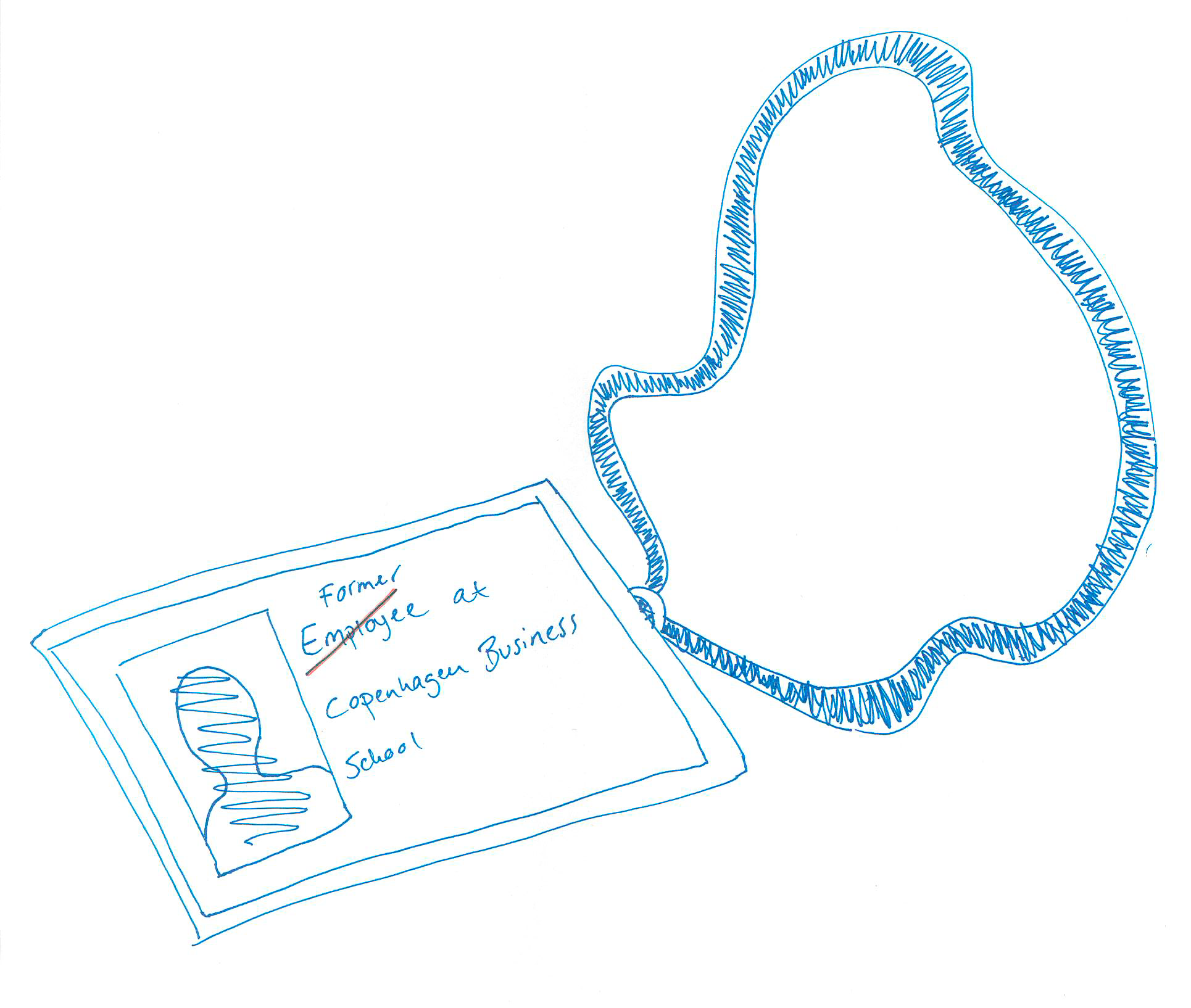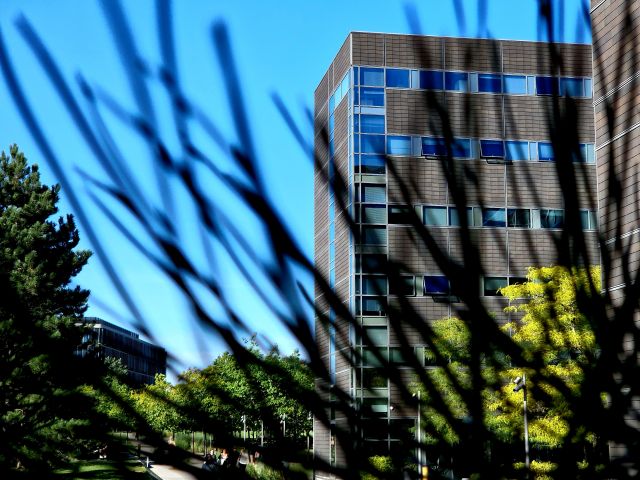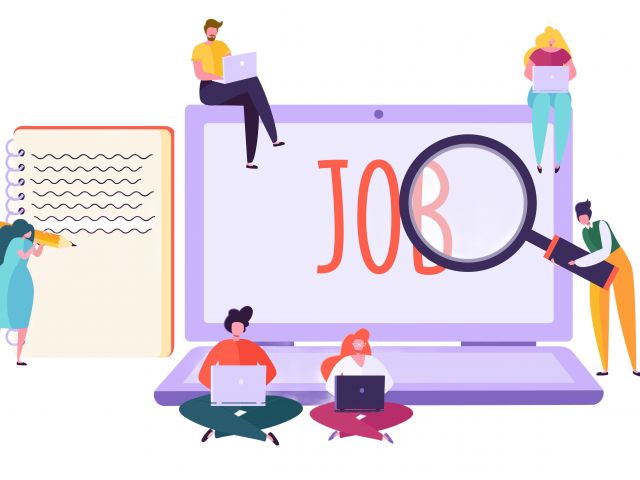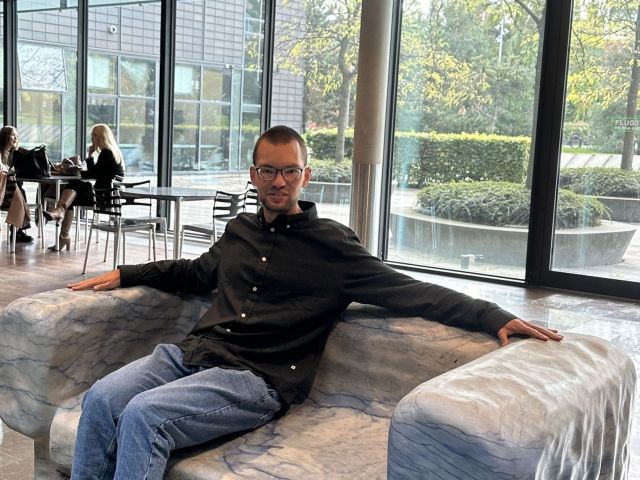Staff layoffs: What happens if you’re fired

Photo: Ida Eriksen
The clock is ticking. On Thursday morning (5 October), CBS employees will know if they are up for dismissal or not. But what will happen on the day? What emotional stages are you likely to encounter? And who will be there to pick you up when you are feeling the blow of being laid off? CBS WIRE has talked to HR and the consulting agency Actief Hartmanns to provide you with answers.
The tension is building among employees at CBS as they are getting closer to the day when they’ll learn whether they will have to clear out their desks or can exhale and get back to business.
On 5 October (4 October for HR & Legal) from between 09:00 and 09:15, employees are to be available on their computers, awaiting an e-mail to reveal if they are up for dismissal.
“Some employees will receive an e-mail with a request that they attend a meeting with their local manager and a representative of HR. Each employee can bring a companion – typically their union representative. At the meeting, the employee will receive a consultation letter, and will have until 24 October at 11:59 pm to send a response on this to CBS,” explains Mette Kuhlen Gullach, Head of HR & Legal at CBS.
Each employee can – as stated above – object to their consultation letter, which contains CBS’ proposal to dismiss you as well as the criteria behind this intent. After the deadline 24 October CBS will make a final decision on whether to terminate your employment or not.
However, formal procedure is one thing. Another is how you cope with the situation emotionally.
To help its employees with this aspect, CBS has invested in assistance from the consulting company Actief Hartmanns, which specialises in helping people get new jobs through so called ‘newplacement programmes’.
The company’s services are available both to staff who are up for dismissal and those who negotiated a voluntary severance package before 5 October.
“Our team will be present on campus on the day of the proposed dismissals, where we’ll provide CBS employees with immediate psychological support in their time of crisis. In addition to this, we will offer five sessions of one and a half hours with each employee to help them find a new job,” says Signe Orlandi Langgaard, Newplacement Manager at Actief Hartmanns and the lead coordinator of the team of consultants assigned to help staff on campus.
It is also possible to go home after learning that you are facing potential termination. However, both Actief Hartmanns and HR at CBS advise that you talk to someone after receiving the news on CBS’ intent to fire you – be it family, friends or colleagues.
Five emotional stages
How you tackle being fired is very individual. Yet there are some typical emotional stages that most people experience, according to Signe Orlandi Langgaard, who has been working with unemployment and management for more than 20 years, and has helped many people through similar dismissal processes:
Shock: In this first phase, you feel like a deer caught in car headlights – you are in shock about what just happened. You might not be able to remember what was just said in your meeting about the potential firing. This phase can take a long time, and you might relapse into this emotion of shock several times during your process of moving on.
Anger: The next feeling that will probably hit you is anger or denial about what just happened. “This must be a mistake”, “they can’t do this”, “I’ve worked so hard and done a lot of overtime” etc. Anger is a perfectly normal feeling in a situation like this and it might take some time before you are able to move on from it and accept the possible layoff.
Despair: Then you might enter a deep valley of despair. Here you question your own capabilities. “If I’m not good enough for this job, where can I work”? A lot of people fear that their age might be a problem for getting a job elsewhere – even at the age of 45, some people ask themselves “Is it possible for me to get a new position”?

Illustration: Ida Eriksen
Acceptance: In this phase, you realise that this situation is real and that you must deal with it. You accept it and take responsibility for the situation by investigating your own career potential.
Taking charge: Now you’ve reached a stage where you are ready to take charge. You are aware of your strengths and weaknesses and have an idea of what types of job you could apply for. Some suddenly discover the possibilities of working in private companies. Others realise they need a job that’s very similar to the one they’ve had to say goodbye to at CBS. In this last phase, you regain your lost confidence and start believing in yourself.
“Our consultants will guide you through all these phases and help you in a way that meets your specific needs and personality,” says Signe Orlandi Langgaard.
From loss to gain
Each of the five one-and-a-half-hour sessions will be led by the same handpicked consultant.
“We put a lot of effort into pairing clients with the right consultants. Therefore, we begin by talking over the phone so that the individual needs of the client – in this case the CBS employee – are matched in alignment with the strengths and personality of the consultant. When we’ve made the right match, the sessions can start,” Signe Orlandi explains.
In the meetings with your consultant from Actief Hartmanns you can expect to become more aware of your personal approach to working on your assignments, and to explore your dreams for your future career, in addition to updating your resume and receiving advice on applications as well as job interviews.
“Also, we present clients with ways to activate their personal networks to find employment. This can be through updating your LinkedIn profile, but also to master the proper storytelling in your local football club, which helps you towards your dream job. 70% of posts are filled outside the normal application system through personal networking,” states Signe Orlandi.
“I’m not worried about helping employees at CBS finding new positions. And I don’t believe age matters very much – we’ve found work for plenty of people above 69 years of age. 70% of the clients who join our programmes get new jobs within eight months and 90% within a year,” she concludes.




































































































































Comments